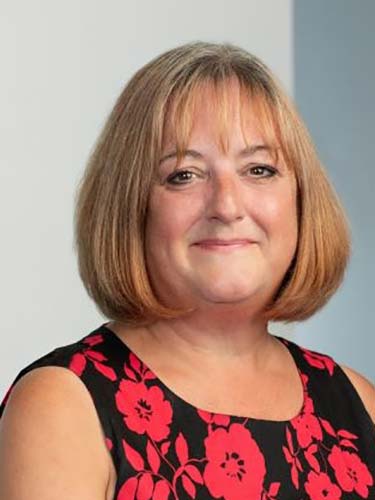Job role: Professor of Entrepreneurship, Hunter Centre for Entrepreneurship, Strategy & Innovation, Strathclyde Business School
Finding out about the opportunity for flexible working or agile working
Sarah’s Head of Department raised the possibility of flexible retirement during a pre-ADR meeting. Sarah was enjoying working four days per week during COVID, as having the Friday off meant she could take a break from work and detach from focusing on outstanding tasks.
Reason for making the request
Sarah has always struggled with taking on too many work projects, and with disengaging from these outside the university. Some ill health brought home the physical risks of overworking, and the COVID four-day weeks opened up the possibility of a more flexible approach helping to address these challenges. From this perspective, she felt that compressed hours would have meant working the same number of hours, exacerbating the over-working challenge. Requesting formal flexible retirement meant that Sarah could pay off some of her mortgage, and decrease her monthly expenditure, so that dropping to four days each week would not have been to her financial detriment. Working four days, and being off for three days, would also benefit her work and non-working life.
Flexible retirement and hours of work
Flexible retirement, sometimes referred to as phased retirement, helps employers to retain valuable experienced staff by enabling those staff to work flexibly, with improved wellbeing and financial security. Flexible retirement is an agreement between the University and the staff member to allow the member aged at least 55 to draw some of their retirement benefits (pension and lump sum) even though their employment continues. In doing so, qualifying staff need to reduce their working hours. Colleagues from the Pensions Office (email: pensions@strath.ac.uk) can meet with staff to discuss options and provide quotations of their pension benefits if they were interested in taking flexible retirement.
Sarah submitted a formal request to move from working full-time to working 0.8 FTE, Monday to Thursday, through initially liaising with HR to complete a form and confirm approval from her Head of Department. The request was subsequently processed by the Pensions team.
Benefits of flexible working to Sarah
Sarah’s teaching and research productivity and effectiveness have increased. Since moving to flexible retirement, Sarah has submitted four successful substantive research proposals, valued at £100,000. Having more time supports the incubation period, which is so key to writing proposals, and she is now successfully working on a more appropriate and self-directed range of projects. Having a three-day weekend gives Sarah more time, for not only rest and spending time with her son, but also to support a more active and sustainable life outside the office, through activities such as cycling and growing her own vegetables. The move has also supported Sarah in the sense that other academic staff better understand that she doesn’t wish to pursue the traditional mainstream academic leadership career path, which Sarah finds liberating.
Benefits of flexible working to the University
Being able to secure substantive research projects, valued at £100,000, means that Sarah is now self-funding and is more successful, delivering focused, relevant research which both support the department’s needs and speaks to her own expertise.
I wanted to be a solid professor, in terms of role-modelling life-appropriate and life-enhancing ways of working, wellbeing at work and away from work… and since moving to flexible retirement, my productivity and performance… in my research and teaching tasks have just gone through the roof.
Advice to staff who may be considering flexible or agile working
Sarah advises that it is important to be clear on what is best for staff, given their own circumstances, both personally and financially.
Final thoughts
For Sarah, the move to flexible retirement has been positive - a liberating and a salutary lesson, allowing her to be more authentic and be the professor she wants to be.
